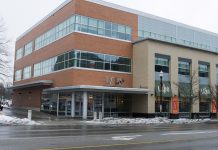UW has announced a new scholarship program to help students gain international work-integrated learning (iWIL) experiences from January 2022 to March 2025. This program will provide more than 65 iWIL experiences for students in various locations around the world with funding by the Government of Canada’s Global Skills Opportunity (GSO). These scholarships aim to fund Indigenous students, students with accessibility needs and those facing financial barriers.
The program was awarded $500,000 from the Government of Canada for virtual and in-person student opportunities and aims to give students the chance to contribute to the implementation of the United Nations (UN) Sustainable Development Goals.
“As international travel opens up in early 2022, Waterloo students in co-op and other campus units with international mobility programs will be able to apply for specific opportunities that advance the sustainable development goals (SDG), and will be supported by a Powering Change scholarship of $10,000 each,” said Shabnam Ivković, director of international strategic initiatives in CEE.
The scholarship will cover accommodation and travel expenses for in-person co-ops, while for virtual opportunities, software and equipment costs will be covered.
“Part of this commitment extends to providing opportunities for students that face barriers. They are powerful change agents both locally and globally. We want their voices to be heard,” said Norah McRae, Associate Provost of Waterloo Co-operative and Experiential Education (CEE).
As the 2021 UN Climate Change Conference came to an end in early November, a study by the university found that 13 per cent of UW students in the Faculty of Environment held jobs across 12 countries related to the SDGs, including gender equality, zero hunger and climate action.
“Educational institutions and students all play a vital role in taking on global challenges and ensuring a sustainable future. Universities can play a role in developing students who can bring those skills and motivation to the future workforce,” McRae said.
With the iWILI program in place, the co-operative and experiential education programs can further help students work towards achieving a more sustainable world.
































